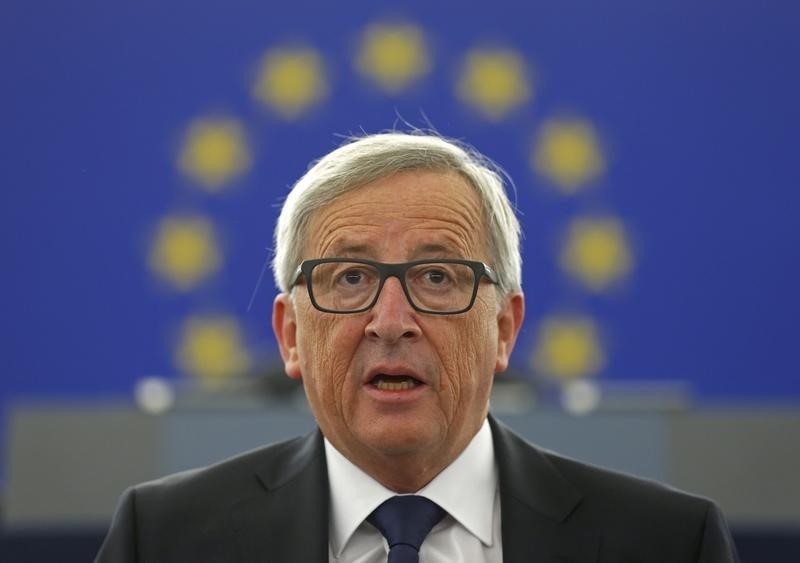BRUSSELS (Reuters) - European Union finance ministers gave their backing on Tuesday to an expanded plan to spur investment and economic growth in the bloc, but they fell short of committing more national funds to the EU Commission-led initiative.
The European Fund for Strategic Investments (EFSI) was launched last year with a target to mobilise 315 billion euros (265.34 billion pound) of additional investment in three years, countering a fall in spending after the 2007-08 global financial crisis.
Citing good results, the European Commission, the EU's executive arm, proposed in September to double the plan's financial capacity and duration.
"Today we agreed a general approach," the chair of the EU presidency, Peter Kazimir, said in a regular meeting of EU finance ministers.
"Europe is facing many challenges today and the need to boost investment is one of them. We need to play our part."
Ministers supported a Commission proposal to extend the plan until 2020 and step up its size to at least 500 billion euros.
Under the expanded plan, 26 billion euros of EU budget money would be used to guarantee the riskiest parts of investments in energy, transport or telecommunication infrastructures, in a bid to attract private and other public investors. The original plan envisaged the use of 16 billion euros from the EU budget.
The European Investment Bank (EIB), the EU's financial arm, would contribute 7.5 billion euros, up from its current commitment of 5 billion to the EFSI.
The combined 33.5 billion euros of EU cash and guarantees would then be used to attract private investments totalling 500 billion euros, 15 times the original amount.
EU finance ministers agreed to increase the EU budget contribution to the expanded plan, but did not commit to national payments under the scheme.
Commission President Jean-Claude Juncker had urged them to add national funds to the EFSI so as to increase its financial capacity to 630 billion euros.
The European Parliament will have to approve to plan before it can be applied.
